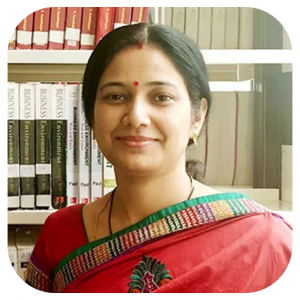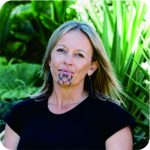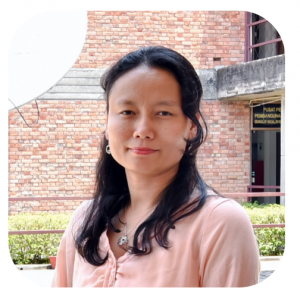(Alphabetical Order by Name)
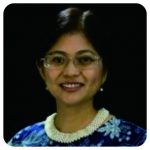 Dr. Ayesah Uy Abubakar (Malaysia)
Dr. Ayesah Uy Abubakar (Malaysia)
Research Fellow, Borneo Institute for Indigenous Studies, and Lecturer, International Relations Programme Universiti Malaysia Sabah
Dr. Ayesah completed her Ph.D. in Development Studies at Universiti Sains Malaysia and was awarded with the Best Thesis for Liberal Arts in 2014. That same year, she was also a recipient of the Japan International Cooperation Agency (JICA) Presidential Award for her work on peacebuilding in Southeast Asia. In 2019, she published a book on Peacebuilding and Sustainable Human Development: The Pursuit of the Bangsamoro Right to Self Determination (Springer and UMS Press). Topic: Critical Conversations 5: Peacebuilding Challenges in Southeast Asia
 Dr Gloria Abaca (Mexico)
Dr Gloria Abaca (Mexico)
Deputy Director of the DEEP Network
Dr. Abaca received her doctorate and a Masters in Peace, Conflict, and Development from Universitat Jaume I, Spain where she teaches an annual intensive course on peace studies. Topic: Conceptual Excursion 1: Feeling and Thinking Peace.
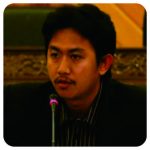 Syaiful Anam (Indonesia)
Syaiful Anam (Indonesia)
Lecturer at the University of Mataram, Nusa Tenggara Barat
Syaiful Anam is a permanent lecturer and researcher at the Department of International Relations, Faculty of Social & Political Sciences, University of Mataram, Lombok, Indonesia, with strong teaching and research focus on Peace, Conflict, and Violence Studies, and contemporary studies on Migration and Security. Currently assigned as Director of ASEAN Studies Center, University of Mataram, a research based-institution under the coordination of the Indonesia Foreign Ministry, focused on the issues of migration, development, and security in the Southeast Asia region. He has a master’s degree from the University of Queensland, Australia (Peace and Conflict Studies), and from the Graduate School of Gadjah Mada University, Yogyakarta (Peace and Conflict Resolutions). Topic: Conceptual Excursion 5: Culture of Peace.
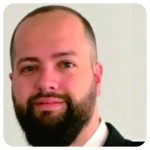 Dr. Egidio Alcides de Bustamante Azevedo (Spain & Brazil)
Dr. Egidio Alcides de Bustamante Azevedo (Spain & Brazil)
Lecturer at the Peace, Conflict, and Development International Studies Masters at Jaume I University.
Egidio has completed his doctorate at the same university. He has previously taught at the University of Innsbruck (Austria) and Paz & Mente (Brazil). Topic: Critical Conversations 3: New Perspectives in Peace Studies.
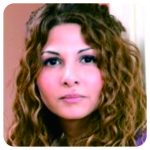 Dr Sima Barmania MBBS MPH Ph.D. (London)
Dr Sima Barmania MBBS MPH Ph.D. (London)
Global Health Consultant and Founder of Potatoes for Peace
Sima is a British medical doctor in global health based in London and Kuala Lumpur. She is a researcher, writer, and freelance consultant, with wide-ranging interests spanning mental health, reproductive health, NCDs, and HIV. She completed her Ph.D. at the United Nations University- Institute of Global Health (UNU-IIGH) looking at the role of Islam in shaping HIV prevention policies in Malaysia. Her specialist area addresses the interface between, public health, religion, and culture and is an Honorary Research Associate at UCL-Institute of Education. Her other interests include spirituality, interfaith, multiculturalism, social cohesion, and peace education. She has recently authored the book “Islam and Health Policies Related to HIV prevention in Malaysia” published by Springer.
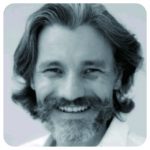 Kevin J. Brenneman (Germany)
Kevin J. Brenneman (Germany)
Member of DEEP Germany
Kevin J. Brenneman is an educator and freelancer. He holds undergraduate degrees in Professional Flight Aviation and Psychology from Purdue University in the USA, an M.A. in Peace, Conflict, and Development from the UNESCO Chair of Philosophy for Peace from Jaume I University in Spain, as well as a TEFL diploma in Business English. Some of his freelance work includes teaching Business English at the International University of Applied Sciences in Cologne and facilitating workshops based on his experience in improvisational theater and elicitive conflict transformation or Peaceprov.
Dr Prity Sharma (India)
Assistant Professor of Political Science and Programme convener of BALLB
Dr. Prity is associated with Asian Law college, Noida as Assistant Professor of Political Science and Programme convener of BALLB. She is the Faculty Coordinator of Gandhian Centre for Peace and Non-violent Communication at Asian Law College, Noida. She is an alumnus of Patna Women’s College and Ranchi University. She has been awarded her Doctoral degree from Ranchi University and her thesis deals with the Indo-China relations from 1991 onwards. Her area of interest lies in International Relations and Public Administration. An ardent academician she has published and presented her papers in research journals of repute and several seminars and conferences. While completing her bachelor’s degree, Dr. Prity presented exhaustive research on ‘Reservation of Women in Panchayati Raj in Bihar’. Dr. Prity has pursued a certification course on ‘Human Rights and Values in Education’. While pursuing her certification course she prepared an extensive report on Female Feticide in India. She has attended various FDPs and actively participates in faculty orientation programme and refresher course.
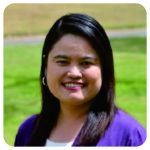 Dr Rungrawee Chalermsripinyorat (Thailand)
Dr Rungrawee Chalermsripinyorat (Thailand)
Lecturer at Prince Songkla University
Rungrawee Chalermsripinyorat obtained a Ph.D. at the ANU’s Coral Bell School of Asia Pacific Affairs (Department of Political and Social Change). She became an expert on violent conflict in Thailand’s predominantly Malay-Muslim South during her career as a journalist with the Nation and Associated Press and later as a political analyst with International Crisis Group. She has since been working as a consultant for UNDP and other international NGOs in Southern Thailand.
 Dr Marisol Cristina Bock (Germany)
Dr Marisol Cristina Bock (Germany)
Co-Director of Global DEEP Network and Musician
Marisol is one of the co-directors of DEEP Germany. Having lived in six different countries, Marisol is fluent in German, Spanish, and English language and culturally adept. Recently, she has just obtained her doctorate in peace studies following up on her MA in Peace, Conflict and Development Studies at Universitat Jaume I in Spain. Marisol is also an accomplished musician.
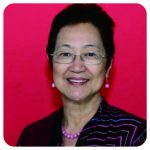 Dr Loreta N. Castro (Philippines)
Dr Loreta N. Castro (Philippines)
Founding Director of the Center for Peace Education of Miriam College
Dr. Loreta N. Castro is the founding director of the Center for Peace Education of Miriam College, where she is also teaching under the International Studies and Education departments. Locally, she is involved in the work of the Peace Education Network and the Interfaith Harmony Partners. Globally, she is active in the Global Campaign for Peace Education, the GPPAC Peace Education Working Group, the International Campaign to Abolish Nuclear Weapons, and the Catholic Nonviolence Initiative of Pax Christi International.
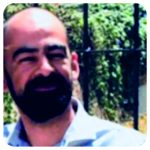 Dr Carlos Cordero-Pedrosa (Spain)
Dr Carlos Cordero-Pedrosa (Spain)
Lecturer at International Peace, Conflict, and Development Studies at Jaume I University
His doctoral thesis is on Frantz Fanon. He is a member of DEEP Decolonizing Circle. He co-authored with I Jin Jang and published two articles and a book chapter on race and racism, colonialism, whiteness, and Black existential philosophy as a decolonizing method. Topic: Critical Conversations 3: New Perspectives in Peace Studies.
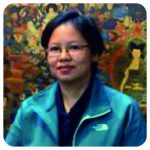 Dr Sylvia Prisca Delima (Indonesia)
Dr Sylvia Prisca Delima (Indonesia)
Lecturer at Jakarta Institute of the Arts
Dr Delima is a fellow at Indonesia Environmental Scientist Association (IESA) and Asia-Pacific Peace Research Association (APPRA). Topic: Critical Conversations 2: Lessons from the Covid Pandemic.
 Dr. Saroja Dorairajoo
Dr. Saroja Dorairajoo
ICCTP Co-coordinator
Dr. Dorairajoo is trained as a cultural anthropologist and is currently teaching at the School of Ethnology and Sociology, Yunnan University, China. She has researched extensively on food and Islam in Thailand, Singapore and China. She is leading pioneering research on safe food and healthy living in Singapore, China and Indonesia. She is also engaged in research on food security in Asia. She is currently doing pioneering sociological research on diabetes in Singapore. She is a big proponent of the principles of regenerative harnessing of nature as a way to create more progressive food and environmental systems in Asia. She has published in several journals and volumes. She is currently working on a volume on healthy living in Islam. Topic: Conceptual Excursion 5: Culture of Peace
 Dr. Douglas P. Fry (United States of America)
Dr. Douglas P. Fry (United States of America)
Professor and Chair of the Department of Peace and Conflict Studies at the University of North Carolina at Greensboro
Dr. Douglas P. Fry is Professor and Chair of the Department of Peace and Conflict Studies at the University of North Carolina at Greensboro. Nurturing Our Humanity, a recent book co-authored with Riane Eisler (2019, Oxford), argues that the path to human survival and well-being in the 21st century hinges on our human capacities to cooperate and promote social equality. Fry also is author of Beyond War (2007, Oxford), The Human Potential for Peace (2006, Oxford) and co-editor of Keeping the Peace: Conflict Resolution and Peaceful Societies Around the World (2004, Routledge) and Cultural Variation in Conflict Resolution: Alternatives to Violence (1997, Erlbaum). Topic: Peace Systems.
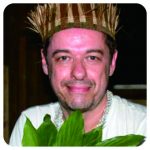 Dr. Andy Hickson (Malaysia)
Dr. Andy Hickson (Malaysia)
Dean Faculty of Arts and Communication at HELP University
Dr Andy Hickson is founder and CEO of Actionwork®. He is also Director of Actionwork Worldwide Ltd. Andy specialises in social theatre and using creative activties to deal with issues of bullying, peace and violence in schools, with young people, with disadvantaged and vulnerable groups in the UK and abroad. Andy’s new book ‘How to stop bullying’ is currently available from Routledge.
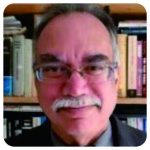 Dr Alberto Gomes (Australia)
Dr Alberto Gomes (Australia)
ICCTP Co-coordinator
Dr Alberto Gomes is an Emeritus Professor of Anthropology at La Trobe University, Melbourne, Australia, and the Founding Director of the DEEP (Dialogue, Empathic Engagement and Peacebuilding) Network (https://globaldeepnetwork.org). He is renowned for his scholarly work on the Orang Asli (Malaysian Aborigines) and has published numerous papers and books including: Modernity and Identity: Asian Illustrations (edited volume, La Trobe University Press, 1994), Malaysia and the Original People (with R. Dentan, K. Endicott, and M. B. Hooker, Allyn and Bacon, 1997), Looking for Money (COAC and Trans Pacific Press, 2004), Modernity and Malaysia: Settling the Menraq Forest Nomads (Routledge, 2007) and Multiethnic Malaysia (edited with Lim Teck Ghee and Azly Rahman, USCI and SIRD, 2009). From the Indigenous peoples, he learnt to appreciate and value nature, peace, nonviolence, empathy, egalitarianism, and ecological regenerative practices.
 Dr Alexander Horstmann (Germany)
Dr Alexander Horstmann (Germany)
Guest Professor at FAU, Germany, and DEEP Global Circle Leader.
Dr. Horstmann is SDAC Guest Professor at FAU, Erlangen Campus, Germany, and DEEP Global Circle leader on global Peace Houses. He is also a regular visiting lecturer at Universitat Jaume I, Spain, teaching a course on peace, development, and epistemic violence. Dr. Horstmann engages in political education initiatives supporting people with migrant and refugee backgrounds in Western Europe. He has extensive scholarly expertise in ethnographic fieldwork on peacebuilding and conflict transformation in Thailand and Myanmar and has published 7 books and 50 articles pertaining to the topic. He is leading research on world anthropology, decolonization, and global justice. Topic: Conceptual Excursion 5: Culture of Peace.
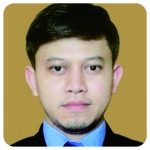 Dr Idham Badruzaman (Indonesia)
Dr Idham Badruzaman (Indonesia)
Lecturer, Department of International Relations, Universitas Muhammadiyah Yogyakarta
Idham has a Masters in Peace, Conflict, and Development from Universitat Jaume I, Spain and he obtained his doctorate at Universidad Autónoma de Madrid, Spain. Topic: Local Forms of Conflict Transformation. Topic: Conceptual Excursion 5: Culture of Peace.
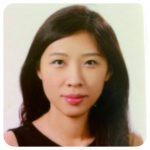 Dr I Jin Jang (Spain & South Korea)
Dr I Jin Jang (Spain & South Korea)
Lecturer at International Peace, Conflict, and Development Studies at Jaume I University
She wrote her doctoral thesis on race and racism from Africana and Black existential philosophical perspectives. She co-authored with Carlos Cordero-Pedrosa and published two articles and a book chapter on race and racism, colonialism, whiteness, and Black existential philosophy as a decolonizing method. Topic: Critical Conversations 3: New Perspectives in Peace Studies.
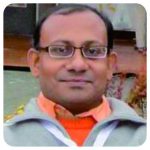 Dr Vedabhyas Kundu (India)
Dr Vedabhyas Kundu (India)
Programme Officer in Gandhi Smriti and Darshan Samiti
He conducts workshops and delivers lectures on nonviolent communication, nonviolent conflict resolution, enhancement of conflict competencies, and media literacy to universities, schools, judicial academies, police academies and other groups. Topic: Conceptual Excursion 12: Non-violent Communication.
 Dr. Paul Komesaroff (Australia)
Dr. Paul Komesaroff (Australia)
Executive Director of the international NGO Global Reconciliation
Paul Komesaroff is a practising physician and Professor of Medicine, and Executive Director of the international NGO Global Reconciliation. He has a Ph.D. in philosophy and an international reputation in health care ethics and has made a major impact on the field of clinical ethics in Australia. He has developed expertise in both qualitative and quantitative investigations of the social and cultural dimensions of health and health care. Topic: Conceptual Excursion 10: Reconciliation.
 Dr Joanne Lim (Malaysia)
Dr Joanne Lim (Malaysia)
Associate Professor and Deputy Dean, University of Nottingham Malaysia Campus
Dr Joanne Lim (Malaysia). Associate Professor and Deputy Dean (Faculty of Arts and Social Sciences) at the University of Nottingham Malaysia Campus. Dr Lim’s research is focused on participatory media and new communication technologies, interculturality, youth identities and civic/political engagement within the Malaysian- Southeast Asian context. Topic: Critical Conversations 6: Promoting Peace and Social Justice: Role of Media and Performative Arts.
Associate Professor Kelli Te Maihāroa, PhD (New Zealand)
Capable NZ – Otago Polytechnic
Kelli Te Maihāroa (Waitaha, Taranaki, Te Ātiawa, Ngāti Rārua) has a background in education and social services, focusing on bicultural responsiveness and Kaupapa Māori initiatives. At Otago Polytechnic, Kelli has a leadership role as Kaihautū: Te Kāhui Whetū, leading Indigenous online undergraduate programmes. She is an active member within her whānau, Iwi and local Māori community. Kelli is a great grandchild of Te Maihāroa, the last southern Māorii prophet and tribal specialist. She was a co-editor of Peacebuilding and the Rights of Indigenous Peoples Experiences and Strategies for the 21st Century (2017) and Decolonising Peace and Conflict Studies through Indigenous Research (2022). Kelli Te Maihāroa gained her PhD from the University of Otago in Māori and Indigenous Studies and Peace and Conflict Studies, focusing on the peace studies within her own Māori tribal community.
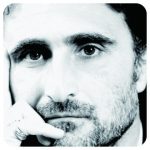 Dr Michális S. Michael (Australia)
Dr Michális S. Michael (Australia)
Adjunct Senior Research Fellow at La Trobe and Monash universities and the Director of the Centre for Dialogue–Global Reconciliation
An expert on dialogue, Dr Michael has published extensively on the subject and has organised and run numerous dialogues at the community and international levels. He is currently writing a book on the Art and Craft of Dialogue. Topic: Conceptual Excursion 9: Dialogue.
 Dr Jennifer Murphy (US)
Dr Jennifer Murphy (US)
Professor in the Sociology Department at Notre Dame de Namur University, USA
She also continues to teach and form part of the core faculty at two prominent Peace Studies graduate programs in Europe, Universitat Jaume I, Spain and the University of Innsbruck, Austria. She is also a guest lecturer for the Maestría en Derechos Humanos y Cultura de Paz, Colombia. Jennifer’s teaching and research are informed by Peace Studies, Critical Pedagogy, Critical Race Theory, Gender and LGBTQ+ Studies and Postcolonial/decolonial thought and analysis. Topic: Conceptual Excursion 7: Conflict Transformation.
 Dr Joam Evans Pim (Spain)
Dr Joam Evans Pim (Spain)
Director, Center for Global Nonkilling
Joám earned his Ph.D. in Social Sciences at Åbo Akademi University after following graduate and undergraduate studies in Journalism, Anthropology and Politics (Peace Studies). He has served different roles at CGNK since 2008 and also teaches seasonally at Jaume I University in Castelló and Åbo Akademi University in Vasa, were he is Adjunct Professor (Docent) in Developmental Psychology with a specialization in Peace and Conflict Research. Edited volumes include Global Nonkilling Leadership (2008, with Glenn Paige), Toward a Nonkilling Paradigm (2009), Nonkilling Societies (2010), Engineering Nonkilling (2011), Nonkilling Psychology (2012, with Dan Christie), Nonkilling Futures (2012, with Jim Dator) and Nonkilling Security and the State (2013).
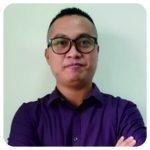 Dr Arie Paksi (Indonesia)
Dr Arie Paksi (Indonesia)
ICCTP Co-Coordinator
Dr Arie Paksi earned his doctorate in peace studies from the University of Bradford, UK. He teaches International Relations and Conflict and Peace Studies at Muhammadiyah University in Yogyakarta.
 Dr Sofia Herrero Rico (Spain)
Dr Sofia Herrero Rico (Spain)
Coordinator of the UNESCO Chair of Philosophy for Peace, Universitat Jaume I (UJI), Castellón, Spain
An expert on peace education, Dr Herrero Rico has undertaken research visits and delivered lectures and seminars in many other countries, including Algeria, Costa Rica, Italy, Mexico Peru, Portugal, and the US. Her scholarly projects focus on innovative pedagogies and cross-cutting issues related to peace, values, recognition, music, and creativity. Topic: Conceptual Excursion 4: Thinking & Teaching Peace.
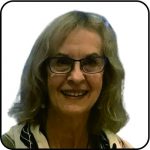 Makere Stewart-Harawira, PhD, MA (1st Hons), BA (New Zealand)
Makere Stewart-Harawira, PhD, MA (1st Hons), BA (New Zealand)
Professor, Faculty of Education – Educational Policy Studies Dept at Alberta University
Dr. Makere Stewart-Harawira is Professor of Indigenous, Environmental and Global Studies, in the College of Social Sciences and Humanities at the University of Alberta and an active member of the Waitaha iwi (tribe) in Aotearoa New Zealand. Dr. Stewart-Harawira’s engagement and research reflect her commitment to global transformation, multispecies justice and our peaceful co-habitation of planet earth. As global society struggles to transition to new modes of co-existence, Indigenous traditional knowledge systems, ethics and values are critical to this process. Relevant published work includes Resilient Systems, Resilient Communities (2018); Returning the sacred: Indigenous ontologies in perilous times in Williams, Roberts & McIntosh, Radical Human Ecology: Intercultural and Indigenous Approaches (2012), The New Imperial Order. Indigenous Responses to Globalization, (2005, 2008).
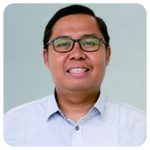 Dr Sugito (Indonesia)
Dr Sugito (Indonesia)
Head of International Relations Dept. Universitas Muhammadiyah Yogyakarta.
Dr. Sugito is a permanent lecturer in International Relations Department of Universitas Muhammadiyah Yogyakarta. Recently, he is the head of the Department. He obtained his bachelor and master degree from Universitas Gadjah Mada, Indonesia. In 2020, he earned his doctoral degree from Universitas Muhammadiyah Yogyakarta, Indonesia. His interests in research include negotiation, conflict resolution, international organizations, and European Union Studies. Sugitos’s publication include “Will Informal Institutions Replace Formal Institutions? The Primacy of Church and ‘Uma Lisan’ in Fostering Community Security in Timor Leste” Unisci Journal (2020).
Dr Zanisah Man (Malaysia)
Lecturer in the Anthropology and Sociology Programme at the National University of Malaysia
Dr Zanisah Man is a Semelai (an Orang Asli sub-ethnic group). She is a lecturer in the Anthropology and Sociology Programme at the National University of Malaysia (Universiti Kebangsaan Malaysia, UKM) and a course coordinator for Indigenous Communities of Malaysia, a course offered in the UKM Global Student Mobility Program. Her research is focused on Indigenous knowledge and her publications include a book entitled Tumbuh-Tumbuhan Ubatan Orang Asli (Orang Asli Medicinal Plants).

